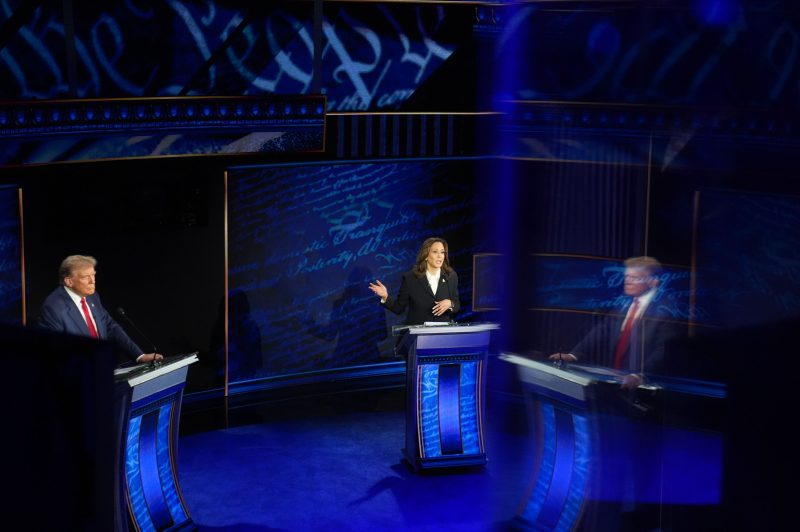
It is not the case, as Donald Trump suggested on social media on Tuesday, that ‘[f]inally everyone is agreeing that I won the Debate with Kamala” — that is, Vice President Kamala Harris.
Or maybe it isn’t; perhaps he held a separate private debate with someone else named Kamala. But no objective observer thinks he won his debate against the vice president. Polling since last week’s encounter has reinforced that — excluding the opt-in social media surveys that Trump eagerly shared in the aftermath of his defeat.
Data released by the polling firm YouGov on Tuesday drills down into the ways in which Trump came up on the short end of the stick. It wasn’t just that viewers believed that Harris had handled the encounter more adeptly. It’s that, on a range of measures, Trump is viewed worse now than he was before the debate.
Going into the debate, for example, an equal number of Americans told YouGov that they thought Trump was a better debater as told the pollster that they thought Harris was. After the debate? Harris was given a 15-point advantage.
That was a dramatic example, but not the only one. Harris was also seen as less likely to dodge a question or stumble over her words. Most Americans now say she is better at staying calm under pressure; only about a quarter of Americans say that Trump is.
Many of these questions, of course, don’t tell us much about how either candidate would fare as president (with the possible exception of the under-pressure one). Presidential debates are ostensibly occasions on which Americans can evaluate and contrast the positions of the candidates but, particularly in the Trump era of politics, they end up being mostly about how the candidates are perceived.
YouGov also presented new data looking at those perceptions. Views of the candidates after the debate were compared with perceptions Americans had at the beginning of August. Harris now has an advantage on every metric except “strong leader.” Trump had a wide advantage on charisma a few weeks ago; that is now gone.
This is linked to Harris’s improvement in measures of candidate favorability, certainly. Voters saw Harris as vice president to an unpopular president. Now they are considering her as a candidate running against Trump and it is beneficial to her campaign.
Since the debate, YouGov has conducted several polls measuring support in the presidential contest. Their polls showed Trump with small leads over President Joe Biden in the weeks before he dropped out of the race. After Harris became the nominee, the small advantages were hers. After the debate, YouGov shows those leads widening — modestly.
This is probably in part because the debate didn’t significantly improve how Americans view her as a steward of various issues. Winning a debate is one thing. Winning over voters who are voting primarily on, say, immigration is another entirely.
Compared to the August poll, perceptions of the candidates on key issues haven’t changed much at all.
Harris bested Trump in presentation during the debate, knocking the former president back on his heels and conveying a better handle of the moment. This isn’t really surprising; Trump’s past general-election debates were almost uniformly mediocre and Harris’s background is as a prosecutor. But while Americans have grown increasingly positive in their estimations of Harris, the debate does not appear to have been a knockout punch politically.
Unless you’re Trump and you’re interested in presenting it as a knockout punch you delivered. In which case, feel free. It’s not true, but whatever makes you feel better.

